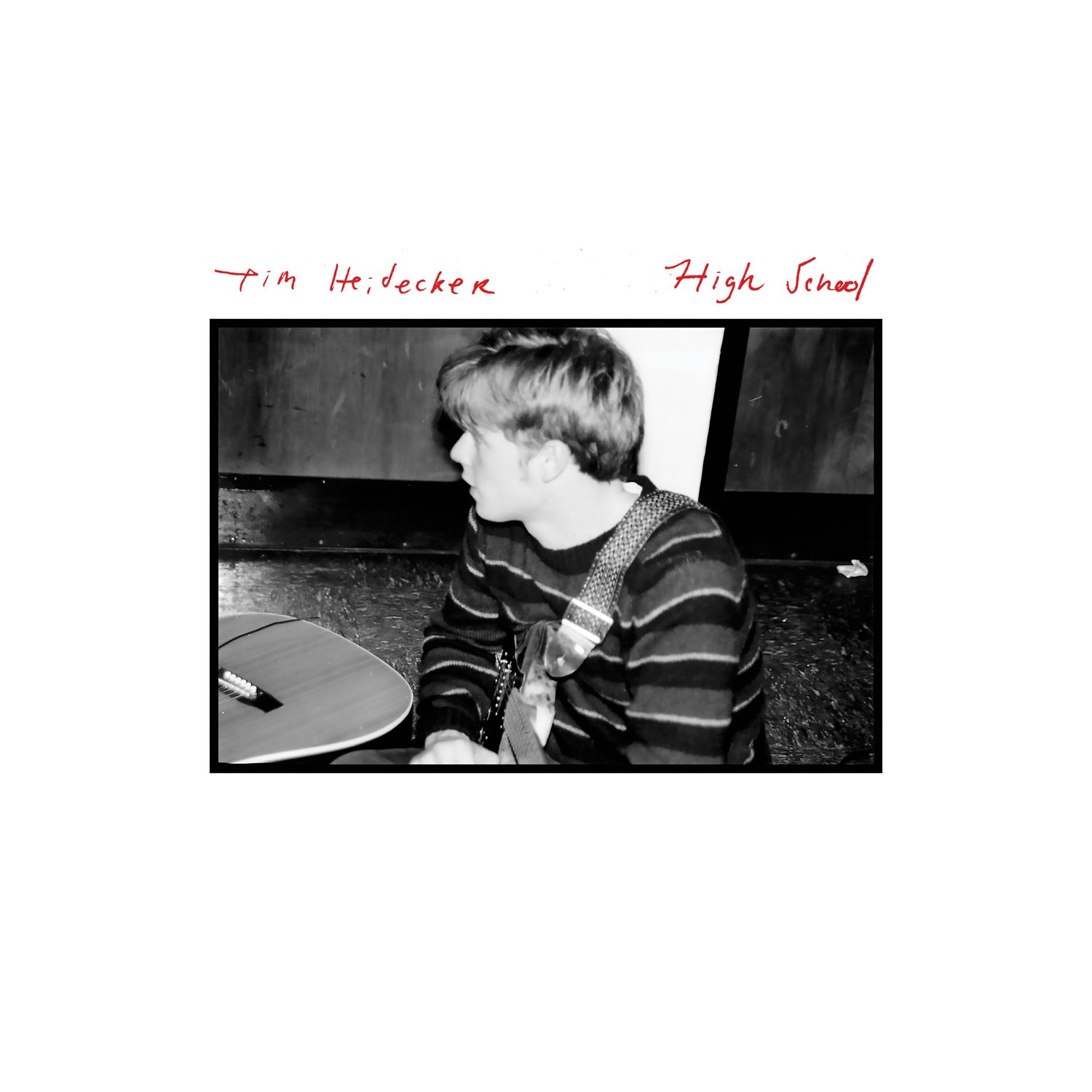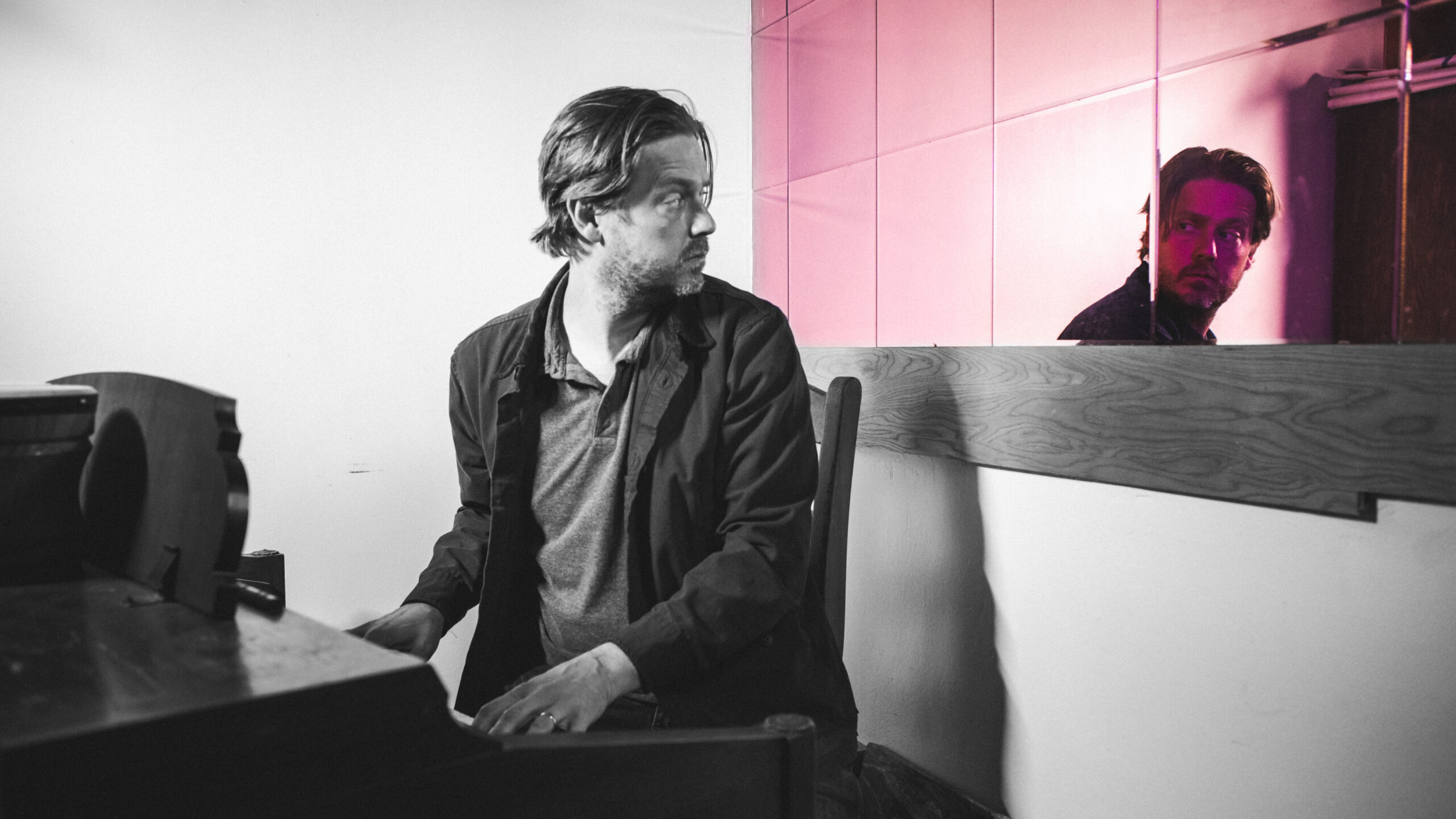Tim Heidecker – High School | Album Review
/Tim Heidecker, still attempting to balance his livelihood as a comedian and prove his reputation as a musician, recently released a new concept album. High School is a compilation of autobiographical songs that tell the tales of classic missteps and boredom fueled by 80s suburbia. While the album offers little to no resolution, we are introduced to the characters of Heidecker’s world; the bands he listened to, the people he left behind, and the internal relationships fostered between himself and his understandings of politics, religion, and privilege. While other projects in vintage and modern music approach this concept better, perhaps there is something quaint and accessible about Heidecker’s world. It is hard to resist well-worn nostalgia, especially when accompanied by a warm musical arrangement.
High School’s opening track, “Buddy,” finds Heidecker lamenting over a burnout friend from high school that he’s since lost touch with. Heidecker describes the friend as “gone” because he was the resident stoner. There is a desperateness to Tim’s inactivity as a character in this song – longing for things to work out for his friend but ultimately seeing him as a lost cause. This narrative choice is interesting, considering Heidecker has mentioned how he took psychedelics in high school. This isn’t a judgment on their activities, but rather an observation of the unfairness for Tim to position himself as a more aware person than his friend as if they were not partaking in the same coming-of-age activities. Heidecker unintentionally brandishes a naivety about why he was able to “escape” this lifestyle while his friend didn’t – never connecting the dots between his friend’s home life (“we turned it up, so you didn’t have to hear the yelling downstairs”) and his own (“Mom and Dad to hear me sing / they seemed to love it, they said it was great”). There is a privilege in not only having the means to escape your hometown and rebuke your identity as a teenager, but also having the support of parental guidance and untouched optimism.
The fifth track, “I’ve Been Losing,” is where Heidecker begins to find his footing. His voice is his own, no longer hiding behind the impulse to slip into his Springsteen and Dylan impressions that get him guaranteed laughs on his call-in podcast Office Hours Live. His tone is sweet and wistful yet enveloped in an unavoidable melancholy. “Working myself up to the fact that my best days are behind me,” he sings in the third verse. This sentiment is common, not just as a punch in the gut for a performer, but as a symptom of the human condition. There is a real resignation in feeling that your peak has come and gone and that there’s no way to reach it, that you can’t go home again. However, my appreciation for this song is diminished by the outro, in which Heidecker sings, “Oh, I’ve been talking / talking too much / maybe I should stop and listen.” This is an ironic point of view for Heidecker to foster, considering the only other endeavor at the forefront of his current career is his podcast. Office Hours Live is fully funded by fan support through Patreon, though it operates under a Howard Stern-esque format, complete with interviews, listener call-ins, and a “comedic” bitterness that is appealing to a demographic that I don’t hold. In short, I don’t believe Heidecker is as self-effacing as he tries to be in this song, and the existence of his podcast is proof that he is more intentioned in finding a viewer to berate than listening and learning, or whatever he is trying to say at the end of this song.
This leads me to ask: If this album is built on framing Heidecker’s adolescence from the perspective of his current adult self (mentions of regret, embarrassment, and longing are scattered throughout each track), then why isn’t there any redemption? It is reductive to focus entirely on the past without also building a bridge to the present and, perhaps in more proactive terms, the future. The crux of catharsis is not just unloading shame from your past but also uncovering the specific desire within oneself to transform or metamorphosize into an entirely new being. For the listener, there is little fulfillment in hearing a stranger wax nostalgic about the one who got away simply because it’s a story that’s been told (and lived) so many times before. It also provides a sense of tunnel vision to the album, which can limit one’s ability to find and apply universality to the sentiments Heidecker is singing about.
The album bounces back and forth between a 90s alt-rock sound and light 70s country psychedelia. It also explores a wannabe 80s novelty song sound in the track “Sirens of Titan.” In my previous article, The Slow Cancellation of the Future: 70s Cosplay in Modern Pop Music, I detailed my disdain for artists' reliance on the aesthetics of 70s music and skewed cultural ideas. In that piece, I also mentioned how Heidecker’s previous album Fear of Death fell under the umbrella of liberally borrowing from 70s rocker influences and how those instincts tarnished my relationship with the album and made me question Heidecker’s motive for wanting a music career. In High School, he continues this trend, focusing his energy on name-dropping bands and musicians he found solace in. These references feel somewhat natural, albeit a bit stilted. It’s clear that Heidecker was mesmerized by the 60s & 70s era of classic rock staples as a kid growing up in the 80s and 90s, but the references almost feel invasive, as if he is working very hard to cultivate a setting without describing anything at all. He is relying on the listener to use their own association and viewpoint of those bands to tap into their own nostalgia. This is a tool that can be implored intelligently, but it seems that Heidecker does it because he doesn’t have anything of depth to say or explore within his adolescence.
In “Sirens of Titan,'' Heidecker reveals that he was a “little right-wing” and “fiscally conservative” until he “got that college degree.” As a long-time fan of his comedy, Heidecker declaring he became progressive or politically enlightened doesn’t feel honestly representative of his post-college work. In addition to this, I cannot recall an interview in which Heidecker has ever mentioned college as a useful experience either in terms of his filmmaking craft or his political awareness. I believe Heidecker’s insistence of his now-honed liberal politics is compensation for the insecurity of his childhood ignorance.
However, in tracks like “Punch in The Gut,” it seems that Heidecker’s activism is still reserved to only pointing out what was wrong, rather than conjuring a hindsight that offers a revolutionary ardor. The song details Heidecker witnessing a schoolyard brawl that targeted “the kid with the different skin.” His point of action was to ask the priest to intervene, and when nothing was done, Heidecker resigned. This song, in particular, highlights the glaring issue with the pattern of lyrical content of this album – Tim doesn’t have any guts. He didn’t advocate for his burnt-out friend in “Buddy,” and he didn’t stand up or involve himself with the classmate who was being bullied to the point of physical harassment. To this day, Heidecker still possesses the same lack of conviction he had in his adolescence, which is why these songs often feel aimless. Speaking of listlessness, late album cut “What Did We Do With Our Time?” channels the height of suburbia angst with the lyrics “I’m a weed-wackin’, lawn-mowin’, leaf-blowin’, snow-shovelin’ boy.” Oh, the horrors of maintaining your environmentally damaging lawn!
I think the exploration of Heidecker’s adolescent cowardness wouldn’t be frustrating if he made any effort to disparage his past self or the environment that allowed him to operate with such passivity. Songs like these have a build-up that needs a release, but instead, Heidecker usually opts to repeat a verse or two until the runtime has reached a respectable length, slowly letting the fade take over. This style can be done; Lucy Dacus’ Home Video comes to mind, where in a few tracks, she invokes more of the timber in her voice and harshens her word choice while still keeping the ballad-like instrumentals. Lyrically, Conor Oberst’s “Next of Kin” manages to name-drop Lou Reed and Patti Smith without feeling shoehorned in. This is because Oberst uses the identities of those two performers to allude to a larger personal theme, stating that meeting them didn’t make him “feel different.” Oberst’s disillusionment with these transgressive icons of his youth correlates with a loss of innocence; his internalized anger didn’t serve his art or his character well. In this context, the output of “meeting” these figures acts as a coming of age moment that’s been prolonged or put off in some way, which is why it works as a binding point between Oberst’s allusions to the death of a relationship and the inability to perform on stage in the first half of the song. This is also why there’s an earned victory and a sense of finality that he found his ‘way back home’ in the closing verse.
Bruce Springsteen’s “No Surrender” from Born in the U.S.A is a masterclass in tapping into the generational angst that Heidecker is chasing throughout the runtime of High School. The song’s second line, “we learned more from a three-minute record than we ever learned in school,” accomplishes what Heidecker’s trivia-esque namedrops attempt but with more emotional resonance. Springsteen does the work to communicate the impact he felt when listening to music, somehow being both vague and specific, which is done purposefully. He is evasive in the act of not naming the record or artist because he knows that won’t serve any value to the song; the descriptor would just serve as a personal easter egg, which can distract the audience from the focused message of the song. This snapshot is just a tool to drive Springsteen’s point further; it is intentional in his choice to describe the experience of listening to music while being young. To write that a record is more important and beneficial to him than school, we understand multiple things: his relationship to music, his relationship to school, and what he desired in his youth. Right away, listeners are able to place themselves in his shoes – it doesn’t matter if they necessarily find resonance in his ideals and objectives because he frames it as a story with himself as a key character. Throughout Born in the U.S.A, Springsteen muses about his youth, looking back and alternating between present and past tense. In “My Hometown,” he relays his disillusionment with what he was told when he was young (be proud of your hometown) to what he saw later (tensions between races in school and firearm-related incidents) and what he sees now as an adult (vacant stores, closed down textile mills). Not everything on the album is factual or speaks to Springsteen’s specific experiences, but its aim is to preserve and communicate the realities of feeling abandoned by youth. In contrast to this, Heidecker focuses on being confessional above all else. The interpretation of one’s own personal narratives can be a liberating act. However, in the context Heidecker presents, it is creatively stifling. His desire to remain honest in his experiences sacrifices the creative edits that could be made for the benefit of the song's story. Poetic license can and should be implemented if it functions better than the original encounter at illustrating the narrative hook or learned moral truth being communicated in the song.
Elsewhere in the album, Heidecker alludes to the political turmoil within himself as a young person growing up towards the end of the Cold War era. This point in time was significant in that, to the conspiracist or critical-paranoid, everything was a sign. Pop culture was flooded with fear and fascination, but that didn’t prevent people from searching for answers in it. Culture was and is a tool that could influence the masses to conformity or a soft rebellion. My assumption of this is perhaps overly reliant on Pynchonian redux, but if Heidecker is willing to reference Vonnegut at the forefront of this album, even having merch that rips off the stylized 90s paperback covers of his books, perhaps it should’ve been the leeway for constructing the atmosphere of growing up in this portion of the Cold War era. Postmodern literature (a response to the dishonesty of the Cold War era) explores paranoia, which can be considered a close cousin to helplessness. I don’t know any other time I’ve felt more helpless than when I was in high school. And it is not only this, but also the idea that technology has its own itinerary. In the 80s and 90s, the idea of people becoming subservient to technology became relevant in the modern context – not just in literature, but in film, television, and music as well. I think this concept could’ve been easily implemented into Heidecker’s songs on High School, especially when his analysis of his youth intersects and overlaps with pop culture and the intrusion of media. He was using music and literature to find meaning because all he found in the real world was boredom.
The album closer “Kern River” effectively achieves what Heidecker has struggled to do in previous tracks; it brought on veritable feelings of nostalgia and wistfulness. For whatever odd reason, whenever I am in a moment, I can sometimes feel myself yearning for the memory even though I am in it, creating it. I’ve always been plagued by a severe sense of sentimentality; I am someone who ruminates on the present as if it’s the past. This song is a snapshot of that experience. It is the culmination of the end of summer, especially if you live in a rural area where kayaking or tubing down a river is a common activity. As Tim sees it, the end of the river is the end of his childhood. Through these obscure, albeit trivial, landmarks, I can notice cracks appearing in the metaphorical shell of my adolescence. The ages of 14 through 18 are difficult because you experience everything with intensity. You have plenty of time and freedom to do what you want, while also noticing the days falling away with a quickness that is only fathomable to kids and to parents who have to watch their kids grow up. Every situation you face and every emotion you feel is magnified because it is the first time you are encountering them. It’s difficult, but somehow you still find yourself prioritizing your teenage years over the whole affair of adulthood.
If “Kern River” is any indication of the heights that Heidecker is capable of reaching, then I am cautiously optimistic about his future endeavors in writing music. I can only hope that Heidecker forgoes the struggle of trying to legitimize himself as a musical performer and person of strong moral virtue and instead focuses on building fully-formed songs with complete emotional depth.
Kaycie is a freshman at Kutztown University of Pennsylvania, where she is majoring in English. You can find her on Instagram at @boyishblues.










